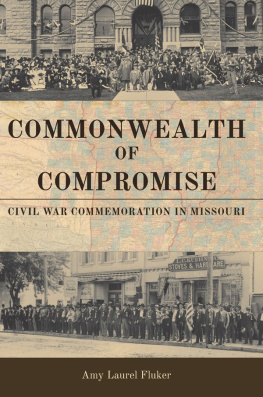Politics of memory
Politics of Memory illustrates how a ruling dominant political party, the Mapai (Israeli Labor Party), under the leadership of Israel's first P.M. David Ben-Gurion, chose to hug, honor and commemorate Her Fallen and Her Bereaved Families, whilst simultaneously ignoring the fallen that were identified with the rival political party, Herut, led by Menachem Begin. Designing legislation and cultural policy designated for teaching the public that those who sacrificed themselves in the Israeli War of Independence were Hagana Members, one of three Israeli undergrounds movements, associated with Mapai specific ideological viewpoint. By that the Israeli state created political legitimacy and dominance for Mapai which was framed as the only political party which were involved with the struggle for national independence. Her fighters, battles and casualties became part of the collective memory and national ethos. This project was implemented by refusing to acknowledge the Other casualties of the Eztel and Lehi underground movements which were ideological identified with Herut Party. The state excluded their bereaved families from the wider official military bereavement circle and forced them to experience disenfranchised grief, with no access to official commemoration or to rehabilitative support. It was only after the Likud's (ex-Herut) victory in the 1977 elections that enabled P.M. Menachem Begin to correct this exile from national identity and to initiate the inclusion of his fighters and casualties to the military cemeteries, to the history books and to the state commemorations, as recognizing their families as part of the National Military Bereavement circles entitled to honors and support.
A thought provoking study about the dark side of the Israeli nation building era, Politics of Memory explores the politics of historiography, bereavement and military commemoration, and the confrontation over boundaries of national pantheon, examining the effects of these factors on Israeli national identity and politics.
With introductions by Moshe Arens, former Israeli Minister of Defense and Minister for Foreign Affairs, and by Yehiel Kadishai, P.M. Menachem Begin's chief of staff, this book will be of interest to students and scholars of Israeli history; military studies; memory and heritage studies; the study of loss and bereavement, and politics in general.
Udi Lebel is Senior Lecturer in Political Psychology and Political Science, Head of the Department of Sociology and Anthropology at the Ariel University Center and Researcher at the Samaria and Jordan Rift R&D Center, Israel. His research interests include; death and dying; cultural politics of loss and bereavement; politics of memory and commemoration and civil military relations.
Israeli History, Politics and Society
Series Editor: Efraim Karsh
Kings College London
This series provides a multidisciplinary examination of all aspects of Israeli history, politics and society, and serves as a means of communication between the various communities interested in Israel: academics, policy-makers; practitioners; journalists and the informed public.
1. Peace in the Middle East: The Challenge for Israel
Edited by Efraim Karsh
2. The Shaping of Israeli Identity: Myth, Memory and Trauma
Edited by Robert Wistrich and David Ohana
3. Between War and Peace: Dilemmas of Israeli Security
Edited by Efraim Karsh
4. US-Israeli Relations at the Crossroads
Edited by Gabriel Sheffer
5. Revisiting the Yom Kippur War
Edited by P R Kumaraswamy
6. Israel: The Dynamics of Change and Continuity
Edited by David Levi-Faur, Gabriel Sheffer and David Vogel
7. In Search of Identity: Jewish Aspects in Israeli Culture
Edited by Dan Urian and Efraim Karsh
8. Israel at the Polls, 1996
Edited by Daniel J Elazar and Shmuel Sandler
9. From Rabin to Netanyahu: Israel's Troubled Agenda
Edited by Efraim Karsh
10. Fabricating Israeli History: The New Historians, second edition
Efraim Karsh
11. Divided against Zion: Anti-Zionist Opposition in Britain to a Jewish State in Palestine, 194548
Rory Miller
12. Peacemaking in a Divided Society: Israel after Rabin
Edited by Sasson Sofer
13. A Twenty-Year Retrospective of Egyptian-Israeli Relations: Peace in Spite of Everything
Ephraim Dowek
14. Global Politics: Essays in Honor of David Vital
Edited by Abraham Ben-Zvi and Aharon Klieman
15. Parties, Elections and Cleavages: Israel in Comparative and Theoretical Perspective
Edited by Reuven Y Hazan and Moshe Maor
16. Israel and the Polls 1999
Edited by Daniel J Elazar and M Ben Mollov
17. Public Policy in Israel
Edited by David Nachmias and Gila Menahem
18. Developments in Israeli Public Administration
Edited by Moshe Maor
19. Israeli Diplomacy and the Quest for Peace
Mordechai Gazit
20. Israeli-Romanian Relations at the End of Ceaucescu's Era,
Yosef Govrin
21. John F Kennedy and the Politics of Arms Sales to Israel
Abraham Ben-Zvi
22. Green Crescent over Nazareth: The Displacement of Christians by Muslims in the Holy Land
Raphael Israeli
23. Jerusalem Divided: The Armistice Region, 194767
Raphael Israeli
24. Decision on Palestine Deferred: America, Britain and Wartime Diplomacy, 193945
Monty Noam Penkower
25. A Dissenting Democracy: The Case of Peace Now, An Israeli Peace Movement
Magnus Norell
26. British, Israel and Anglo-Jewry 194757
Natan Aridan
27. Israeli Identity: In Search of a Successor to the Pioneer, Tsabar and Settler
Lilly Weissbrod
28. The Israeli Palestinians: An Arab Minority in the Jewish State
Edited by Alexander Bligh
29. Israel, the Hashemites and the Palestinians: The Fateful Triangle
Edited by Efraim Karsh and P R Kumaraswamy
30. Last Days in Israel
Abraham Diskin
31. War in Palestine, 1948: Strategy and Diplomacy
David Tal
32. Rethinking the Middle East
Efraim Karsh
33. Ben-Gurion against the Knesset
Giora Goldberg
34. Trapped Fools: Thirty Years of Israeli Policy in the Territories
Schlomo Gazit
35. Israel's Quest for Recognition and Acceptance in Asia: Garrison State Diplomacy
Jacob Abadi
36. H V Evatt and the Establishment of Israel: The Undercover Zionist
Daniel Mandel
37. Navigating Perilous Waters: An Israeli Strategy for Peace and Security
Ephraim Sneh
38. Lyndon B Johnson and the Politics of Arms Sales to Israel: In the Shadow of the Hawk
Abraham Ben-Zvi
39. Israel at the Polls 2003







